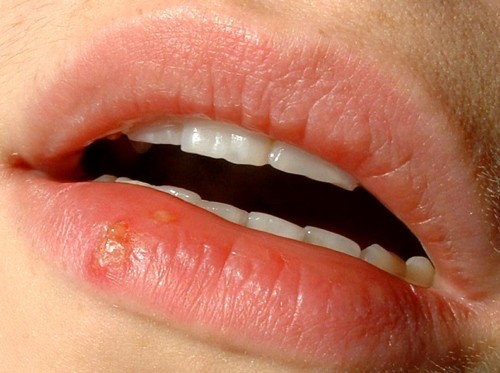Oral herpes, sometimes referred to as mouth herpes, is a very common infection. According to the ASHA, more than 50% of the adult population of the United States already has oral herpes. Oral herpes is typically caused by a virus known as herpes simplex virus 1, or HSV-1. The CDC believes that most people become infected with this virus during childhood.
Oral herpes can be called “cold sores” or “fever blisters.” While symptoms of oral herpes most commonly appear on or around the lips, oral herpes is not always limited to this area. For some, symptoms may appear between the upper lip, inside the nose or on the chin or cheek. Oral herpes is transmitted through skin-to-skin contact. When symptoms are present, transmission is more likely, however, herpes can also be transmitted when there are no symptoms or signs. There are several days throughout the year when the virus reactivates yet causes no symptoms. This is called asymptomatic shedding, viral shedding or asymptomatic reactivation.
If a person is experiencing symptoms of oral herpes, most health professionals recommend abstaining from performing oral sex and kissing others directly on the mouth. This can help prevent the spread of the virus. By performing oral sex on someone who has genital herpes, it would be possible to contract oral herpes. Most cases of genital herpes are caused by herpes simplex virus 2, or HSV-2.
Since herpes is caused by one of two viruses, there is currently no cure. There are several medicines and treatments that can help you to prevent or shorten outbreaks. Some such treatments can even make it less likely to transmit the infection to your sexual partners. If you believe that you currently have herpes, please speak to a doctor about any treatment options that may be available to you.
If you are currently pregnant and are concerned that you may have been exposed to genital herpes, it is important to speak with a health care professional. Sometimes genital herpes can lead to complications during pregnancy and even potential miscarriage. Herpes infection can be passed from mother to child and cause potentially fatal infections in a child. It is important that you avoid getting herpes during pregnancy.
The CDC recommends practicing safe sex with the use of latex condoms although even this cannot always prevent infection.If you are concerned that you may have been exposed to an STD, or simply want to know your current sexual health status, you should have STD testing performed. This is the best way to prevent the spread of STDs.
